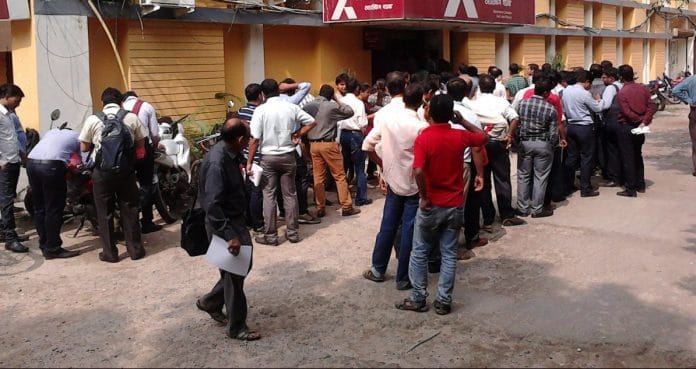While there have been rumours suggesting a second demonetisation, possibly targeting the Rs 2,000 note, the Indian government has rejected them.
New Delhi: Memories of demonetisation may be fading in India but there seem to be fresh fears about the stability of the Indian rupee among neighbours where the currency is legal tender or is widely accepted.
Bhutan’s central bank, the Royal Monetary Authority (RMA), warned citizens this week about “the risks of holding Indian currency”, saying it would not be responsible for any future demonetisation-like actions taken by its Indian counterpart, the RBI.
It has advised citizens to deposit their INR holdings in banks, and not hold the currency in cash. The INR is legal tender in Bhutan.
Meanwhile, a mechanism is yet to be worked out with Nepal on the exchange of the estimated Rs 900 crore held by individuals and the informal sector has in the old Rs 500 and Rs 1,000 notes.
Discussions since 2016 have failed to produce a breakthrough in the absence of a clear estimate of the exact amount of INR in Nepal and doubts about the proportion of fake notes in the country, long suspected to be a centre of operations to counterfeit Indian notes.
Neighbourhood shaken
The two countries were hit hard by the shock announcement by Prime Minister Narendra Modi in November 2016 to demonetise 80 per cent of the currency in circulation.
Besides Indians, people in Nepal and Bhutan, which have vast reserves of the currency, were caught off guard. Although a swift response from both New Delhi and Thimphu has led Bhutan to reportedly get over the aftershocks, fear still plagues the Himalayan nation.
“The caution of the Bhutanese central bank is evidence that India’s neighbouring nations are fearful about the Indian rupee,” said Pronab Sen, an economist at International Growth Centre, a research centre based at the London School of Economics.
“The root cause of such announcements is talk about a second round of demonetisation, especially the banning of Rs 2,000 notes. We must understand that our neighbours are nervous and they don’t want to deal in cash. They need clarity,” Sen, who was also the first chief statistician of India, added.
“The bewildered neighbours need clarity as the reports over another round of note ban have become common,” Bidisha Ganguly, principal economist at industry lobby Confederation of Indian Industry, said. “It generates nervousness around Indian currency in cash.”
‘Double whammy’
“Our immediate neighbours specifically Nepal, Bhutan and Bangladesh, which do cash trade with India, are paranoid about the rupee,” Nisha Taneja, a professor at the Indian Council for Research on International Economic Relations, an economic policy think tank, said.
“It is a double whammy for traders in Bhutan,” said Taneja, who specialises in border trade. “They are confused about the application of goods and services tax and want to do more business through the informal channel. However, the fear of note ban won’t let them hoard cash as well.”
There are no official estimates on the value of border trade conducted in cash, but “it is significant”, she said.
However, while they acknowledge the fear, economists are not worried.
“The fear over keeping Indian currency in cash is a fringe problem,” said D.K. Srivastava, an economist at accounting firm Ernst & Young.
“The good thing is we hardly deal in cash. It is the informal trade that happens in cash. The distrust shown in Indian cash…has no impact on the value of rupee,” he added.
While there have been rumours suggesting a second demonetisation, possibly targeting the Rs 2,000 note, the government has rejected them.
In March last year, finance minister Arun Jaitley said in a written reply to the Lok Sabha that there was no such plan in the wings, but didn’t respond when the opposition raised the same question in the Rajya Sabha in July.







Seigniorage is the profit a government earns from issuing fiat currency, a sort of interest free loan holders of rupee or dollar notes are extending to the issuer. The amounts involved in Nepal and Bhutan are small. However, it is a measure of Indian influence in the region that people use INR. Immediately after the two month window for exchange closed in India, the RBI should have discussed this issue with the central banks in Nepal and Bhutan, arranged an immediate swap, taking care only to weed out counterfeit currency. Even now, not too late to do the right thing.